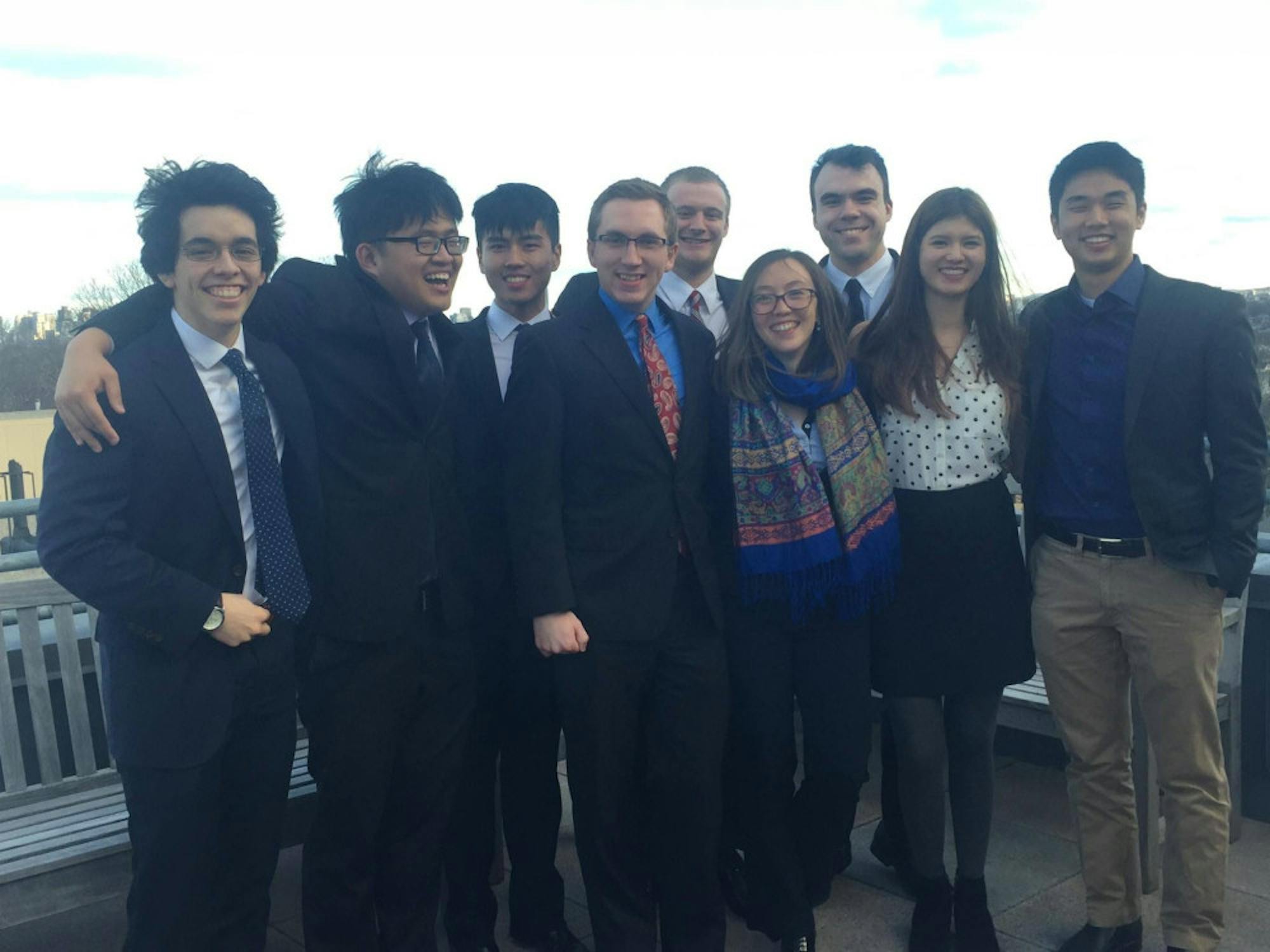Disclaimer: Yuan Jun Chee is a sports editor at the Daily. He was not involved in the writing of this article.
As China continues to ascend on the world stage, Tufts Sino-U.S. Relations Group Engagement (SURGE) aims to inform and engage students in conversations about China. More specifically, SURGE focuses on building networks among students who share a common interest in China-U.S. relations.
“Our club mission is to foster dialogue on one of the most important bilateral relations in the international sphere,” Winnona DeSombre, a junior and former director of SURGE, said. “But we also want to have fun while doing it.”
SURGE began 10 years ago as a half-day lecture to memorialize David Rawson (LA '07), who passed away shortly after graduation and had been very focused on China and security issues, according to the SURGE website.
Kieran Green, a senior and former deputy director of SURGE, explained that the lecture series gradually grew over the course of the next seven years to include panels on business, the environment and cultural issues. This became the China-U.S. Symposium, which remained a part of the Institute for Global Leadership (IGL) until 2014, when the China-U.S. Symposium left the IGL due to reorganization and became an independent club.
DeSombre said this separation from the IGL, alongside official recognition by the Tufts Community Union (TCU) Judiciary, allows SURGE to put on a variety of events in addition to the symposium, including an annual China-U.S. trivia event and an annual bubble tea sale.
She added that separating from the IGL allowed SURGE to integrate into the Tufts community as a student organization by being open to a larger group of students.
Junior Jack Dunkelman, the incoming director of SURGE, said SURGE members span a wide range of majors, from international relations to computer science.
“I think, thanks to the diversity of Tufts and the general curiosity students here have, SURGE’s membership is comprised of people from quite varied and international backgrounds who possess different academic interests,” Dunkelman told the Daily in an email.
According to Yuan Jun Chee, a sophomore and the new deputy director of SURGE, SURGE's diversity is evident not only in members' majors but also in their reasons for involvement.
“People have different motivations for joining SURGE,” he said. “They could be Asian American, they could be IR majors, they could be Southeast Asian like myself, they could be Chinese internationals who want to expand that dialogue. We’re a very open community.”
Chee said SURGE's meetings cover a variety of topics that relate to the China-U.S. relationship. He noted that cybersecurity and issues surrounding the South China Sea are now being discussed differently in the wake of Trump's inauguration.
Green stressed that SURGE aims to start more thoughtful and nuanced conversations about the political, economic and cultural relationship between the United States and China.
“Broadly speaking, the China-U.S. relationship, I think, is in a lot of ways either boiled down to a trade imbalance or the typical IR 'great power relationship,'” Green said. “And those aren’t untrue, but I think we pride ourselves in unpacking some of the complexities in what defines that relationship and looking at bringing in perspectives that add a lot more nuance to that debate.”
Though SURGE has expanded its scope to include more events, the two-and-a-half-day China-U.S. Symposium still remains the hallmark of the club. According to Dunkelman, the symposium aims to increase awareness and understanding of issues surrounding China-U.S. relations while emphasizing the need for international cooperation.
DeSombre said the theme of this year’s symposium, which took place on April 7 and 8, was "Building Legacy." The 10th annual symposium, which typically entails four panels, included a cultural panel about cross-exchange in education, a security panel about information warfare, a regional panel about Obama’s Pivot to Asia and a business panel.
According to DeSombre, the symposium evolves with each year and depends heavily on the interests of the members of the club and on current events.
“The panels change year to year. We’ve had environmental topics and cybersecurity topics and a whole bunch of other panels based on who or what we want to bring to the table,” DeSombre said.
The end of this year’s symposium saw a change in leadership. Chee and Dunkelman, who will take over as leaders of SURGE next fall, hope to continue providing a space for dialogue and engagement and working with other organizations involved in similar pursuits.
“We hope to build SURGE’s sense of community and engagement with other students through expanding the scope of events and discussion opportunities we organize,” Dunkelman wrote.
DeSombre and Green hope SURGE will continue to serve as an important resource for the Tufts community as U.S.-China relations continue to evolve.
“Fundamentally, this club represents not only something important internationally, but is also a huge issue that isn’t just going to be relevant to 10 years of Tufts students, but for future students too," DeSombre said.
SURGE hosts symposium, provides space for conversation about China-U.S. relationship

Members of the planning board for this year's symposium pose for a portrait.





